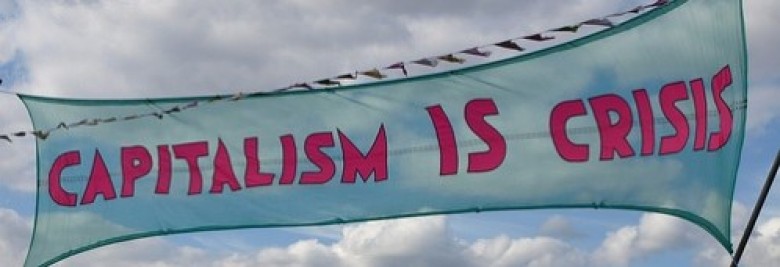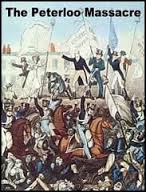
William Morris
NEWS FROM NOWHERE CLUB: 2015 PROGRAMME
Patron: Peter Hennessy
‘Fellowship is life and the lack of fellowship is death.’ William Morris
PROGRAMME 2015
VENUE Epicentre, West St. Leytonstone E11 4LJ
TIMES 7.30 Buffet: please bring something, 8.00 Talk and questions/discussion
TRAVEL Leytonstone or Stratford tube, 257 bus or Leytonstone High Rd overground and short walk
All welcome, just turn up. Free. Donations welcome. Car park. You need to walk to the front of the building – back door is usually locked. Quiet kids welcome.
Enquiries: 0208 555 5248 or 07443 480 509 info@newsfromnowhereclub.org.
Saturday 10 January 2015: Bollington: Utopia in Cheshire? And Letchworth Garden City: Health of the Country, Comforts of the Town
Speakers: Jim Hoyle & William Armitage
Jim moved from Birmingham to Bollington in 2012, having fallen in love with it. He has not been disappointed. His talk will consider every aspect of this unique Cheshire town. Its history, rich cultural life, demographics and campaigns will be covered in a witty presentation……. In 1898 Ebenezer Howard, Letchworth’s founder, had a vision: through careful planning we could elevate many of the desperately poor living & working conditions in towns & villages. Today Letchworth remains close to its original ideals. William, Board Member of Letchworth Heritage Foundation, was Managing Director of David’s Bookshop in Letchworth for 40 years.
Saturday 14 February 2015: The Bethnal Green Tube Shelter Disaster
Speaker: Joy Puritz
One evening in March 1943, 173 people, including 62 children, were crushed to death trying to enter a station shelter. This talk is a description of the circumstances which led to the worst civilian disaster of WWII in this country, whether it could have been avoided & if anyone was to blame. Many have thought there was a cover up. Poignant anecdotes will be related. Joy has been closely involved in the Bethnal Green Memorial Project, an oral history project organised by the University of East London & has studied witness statements taken for the Government enquiry in 1943, interviewed survivors, shown visitors around the memorial sculpture & written texts for the project’s archive & guidebook.
Saturday 14 March 2015: The Life of Bees
Speaker: Ian Nichols
Ian, a local beekeeper and active member and Trustee of Essex Beekeepers Association, initiated, as Annual Conference Chair in 2013, a forum on ‘Plants, Pollinators and Pesticides’, with lectures by leading experts. He has worked with prominent figures in the bee world, has done much to promote awareness of the plight of bees in the wider community & was delighted with the award of First Prize and Best in Show for his honey & photography at the Essex Show in 2014. He will give his high speed talk covering: A Short History of the Honey Bee, Life inside the Hive, Bee Products, Danger & Threats to Bees. He will also be selling his award winning honey.
Saturday 11 April 2015: ‘The most lovable figure’: George Lansbury and East End politics
Speaker: Professor John Shepherd
‘The most lovable figure in modern politics’ was how A.J.P. Taylor described Christian socialist and pacifist, George Lansbury. At 73 the former rebel in 1932 took over the helm of the Labour Party of only 46 MPs in the Depression years. Throughout a remarkable life, the immensely popular Lansbury remained an extraordinary politician of the people, associated with a multitude of crusades for women’s enfranchisement, social justice and universal disarmament. He was twice jailed for his political beliefs in 1913 over ‘votes for women’ and during the 1921 ‘Poplar Rates Revolt,’ when 30 Labour councillors willingly went to prison in defiance of the government, the courts and their own party leadership. Lansbury never sought personal wealth, travelled everywhere by public transport and made his family home in impoverished East London. His final years were spent in a tireless international crusade, including visits to Hitler and Mussolini in 1937, to prevent the drift towards another world war.
Saturday 9 May 2015: Permaculture: Working with Nature
Speaker: Ros Bedlow
Take a walk in Epping Forest. Trees, grasses, fungi, birds, insects, squirrels, foxes, all going about their business. Things change, but the forest keeps going: sustainable in the true sense of the word. What is it about an ecosystem like this that keeps it going & can we learn anything from it? Permaculture, developed in Australia in the 1970s as a response to agricultural practices which were degrading the land, was based on observation of nature & provided a framework for designing sustainable food growing systems. Ros has taught permaculture since the 1980s & is particularly interested in the way permaculture ethics & principles can be applied to groups, communities, indeed to any system, to increase their sustainability.
Saturday 13 June 2015: “It’s the Monarchy, Stupid”: Why the Crown is the Biggest Obstacle to Constitutional Reform
Speaker: Graham Smith
The monarchy is the keystone of the British constitution & the source of political & royal power, the wellspring of the establishment’s culture of pomposity & authority. Yet it is wrong in principle, wrong in practice & bad for British politics, the antithesis of the democratic spirit that drives ever-growing demands for reform & the biggest obstacle to the radical reform Britain needs. Arguments about devolution, localism & city mayors miss the point: the democratic revolution must happen in Westminster first. Without a seismic shift in our political system’s foundation, all else is tinkering at the edges of a fundamentally flawed system. Graham is the Chief Executive Officer of Republic campaign.
Saturday 11 July (part of the Leytonstone Festival): “All’s Well”: A Musical Journey to Antarctica
Speaker/ Performer: Jake Wilson
In 2012, guitarist & songwriter Jake Wilson released “All’s Well”, a collection of songs marking the centenary of the deaths of Captain Scott & his polar party on their return journey from the South Pole. In 2013, Jake received unique permission to travel to Antarctica & perform his songs in the actual hut where Scott & his team lived & worked before setting out for the Pole. Jake will be talking about Scott & his companions, performing his songs & discussing his own extraordinary musical expedition to Antarctica. For more information: http://www.jakewilsonmusic.com
Saturday 8 August 2015: ‘It Happened Here’
Speaker: Kevin Brownlow
Kevin Brownlow, the British film restorer, historian & director recently awarded an honorary Oscar for lifetime services to cinema, will talk about his first film It Happened Here, co-directed with Andrew Mollo when both were teenagers: a counter-factual history of Britain under Nazi occupation in the closing year of World War Two. Often described as the best amateur film ever made, superb in its authenticity & attention to period detail, it contained scenes in which genuine British Nazis were allowed to expound their views, leading to its being misinterpreted & condemned by many as pro-Nazi. Kevin, who visited Hamburg in 2014 for the film’s first public showing in Germany, will talk & show us excerpts of his film.
Saturday 12 September 2015: James Pound, Rector of Wanstead, Natural Philosopher and Astronomer
Speaker: Dr John Fisher
In 1707 James Pound survived a massacre at an outpost of the East India Company near Cambodia. He navigated a small ship through pirate-infested waters. In 1709 he was appointed Rector of Wanstead by Sir Richard Child. Pound, a Fellow of the Royal Society, sought a solution to the problem of determining the longitude at sea, before the Longitude Prize was instituted. From 1710 Wanstead became a leading centre of scientific research. Pound worked with Edmond Halley and Isaac Newton. Pound’s nephew, James Bradley, became the first to demonstrate that the Earth was in motion. The work at Wanstead led to the solution of determining longitude at sea. Dr John Fisher lives in Forest Gate, was a factory worker without any educational qualifications, was one of the first Open University students and later lectured in the history of science at Imperial College, London.
Saturday 10 October 2015: Walking with Passion: A One Way Ticket to Jarrow
Speaker: Carole Vincent
Journeying from Jarrow to Trafalgar Square, a group of people from all walks of life came together in August 2014, planning to walk an historic route first taken by the Jarrow March for Jobs on 2 October 1936. However, this was the first of its kind to enlighten communities on route of the devastating privatisation of our NHS & to muster support for the ‘Call999fortheNHS’ Campaign. Carole tells her story of those three weeks & why she walked the 300 miles.
Saturday 14 November 2015: Trauma, Grief and Resilience in Gaza
Speakers: Dr Mohamed Altawil and David Harrold
What does it means to be a child in Gaza? You may be surprised by answers from Dr Mohamed Altawil & David Harrold of Palestine Trauma Centre (UK) who work with a trauma centre in Gaza helping children & families. The situations are often harrowing; but the people, especially the children, can be inspiring. Mohamed & David will show the work of the trauma team, recite some poetry & discuss future prospects for these wonderful children who have experienced eight years of siege & four brutal invasions.
Saturday 12 December 2015: The Direct Path to Enlightenment
Speaker: Vanaraji
How can we live in a better world? Changing our mind changes the world. The teachings of the Buddha help us change how we think & give us a new perspective on life that leads to freedom from suffering, for ourselves & others. Vanaraji, an Ordained Buddhist in the Triratana Buddhist Order, will give an overview of Buddhist principles & practices that free us from mundane consciousness & help us experience more vividly the Enlightened world.
**END**
‘Human Herbs’ – a song by Cold Hands & Quarter Moon: http://www.youtube.com/watch?v=Au-vyMtfDAs
Posted here by Glenn Rikowski
Glenn Rikowski @ Academia: http://independent.academia.edu/GlennRikowski
Glenn Rikowski @ ResearchGate: http://www.researchgate.net/profile/Glenn_Rikowski?ev=hdr_xprf
Online Publications at The Flow of Ideas: http://www.flowideas.co.uk/?page=pub&sub=Online%20Publications%20Glenn%20Rikowski
Volumizer: http://glennrikowski.blogspot.com



















